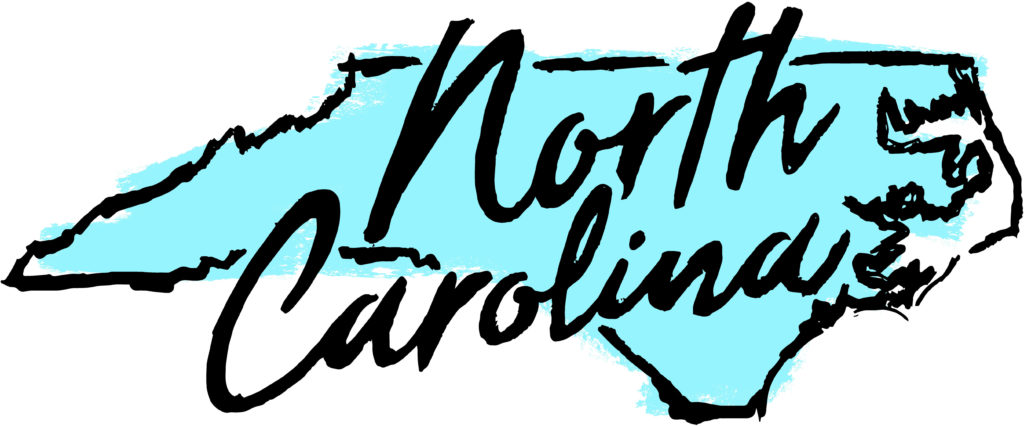
North Carolina collaborates with major corporations and industries, and training programs to ensure that companies have skilled professionals they need to fill job vacancies. The state’s Career and Technical Education (CTE) enables students to obtain knowledge and skills that potential employers are seeking with a few years of training and education. Students can find professional success even if they don’t have a bachelor’s degree. With that said, students must consider enrolling in trade schools in North Carolina to get an education that prepares them for in-demand careers in two years or less. Key sectors in the state, namely automotive, energy, and information technology, require skilled professionals who have career diplomas, certificate programs, or technical associate degrees.
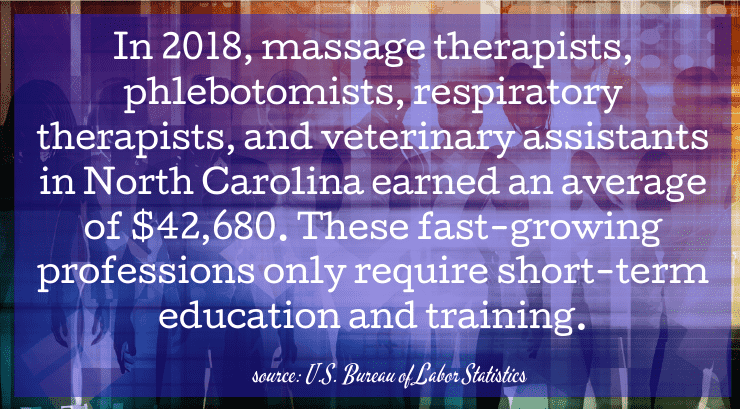
As a concrete example, solar panel installers have a rapidly-growing job in North Carolina, according to an analysis report conducted by Yahoo Finance. According to the Bureau of Labor Statistics, these professionals only require some short-term education and earn median salaries of $42,680 in 2018. Other fast-growing and high-paying occupations in North Carolina include massage therapists, phlebotomists, respiratory therapists, and veterinary assistants.
Career prospects differ by region. The North Carolina Department of Commerce reports HVAC technicians and veterinary technologists are in demand in the Charlotte region. On the other hand, medical assistants, respiratory therapists, and phlebotomists are some of the fastest-growing professions in the Raleigh-Durham region.
Why is North Carolina Ideal for Trade Schools?
According to the 2018 Employer Needs Survey conducted by the NCWorks Commission, more than 43% of North Carolina’s employers expect to grow their hiring in the future. However, half of the employers say they have a hard time finding suitable employees, with 49% of them saying it is because of the applicant’s lack of essential technical skills.

In total, 55% of the state’s job market requires some post-secondary education but not a bachelor’s degree. According to the National Skills Coalition, only 44% of North Carolina workers are eligible to fill job vacancies. Fortunately, several vocational schools in North Carolina teach Career and Technical Education (CTE) skills and expertise. When it comes to certifications of CTE, North Carolina Community Colleges operate in 58 headquarters, preparing students for professional credentials and state licensure. Online education, on-campus, and apprenticeship programs are offered by these community colleges and other vocational schools in North Carolina.
Financial Aid for Trade Students in North Carolina
The North Carolina Community College System says public career and technical schools in the state offer some of the country’s lowest tuition and fees. Many of these academic institutions offer flexible learning options such as online, weekend, and evening classes which mean learners can keep their job while in college and reduce the need for student loans.
Students can lower their educational expenses even further by applying for financial aid in North Carolina. North Carolina is one of the country’s leading states that promoted higher education in 2020 based on the report by the annual Grapevine Survey of Illinois State University. North Carolina also increased its funding for public institutions, universities, and community colleges by 4.8% in 2018 and 18.4% in the last five years. This fund serves as general support for public, academic institutions, as well as support for several North Carolina grants and scholarship programs.
North Carolina’s College Foundation has a list of scholarships available in the state. Students must complete the Free Application for Federal Student Aid (FAFSA) to apply for scholarships and grants in North Carolina. The FAFSA is utilized by the federal and state governments as well as vocational and trade schools in the state to determine if someone is eligible for financial aid.
Some of the North Carolina grants and scholarship programs available are the following:
- Golden LEAF Scholarship Program for North Carolina Community Colleges: This scholarship program awards $750 per semester for eligible students. It is available to residents of rural, economically-distressed areas and has demonstrated financial necessity.
- NC Community College Grant Program: These programs are available to North Carolina residents who are enrolled for at least six credit hours each semester in a specific program at a state community college. The quantity of the award depends on the students’ financial situation.
- North Carolina Education Lottery Scholarship: This program is awarded to those enrolled in a North Carolina Community College or University of North Carolina campus. The amount granted to the student will depend on his or her financial status.
Initiatives for Trade Students in North Carolina
North Carolina’s CTE certification is endorsed through state funding and policy initiatives. The provision for career and technical education begins in high school. Not only some schools have their own concrete CTE programs, but also the Career & College Promise which enables high school students to obtain credit for a diploma, certificate, or associate degree program at no extra cost.
Furthermore, the NC Department of Commerce offers numerous Workforce Grants to train professionals for in-demand jobs. Much of this money is directed through employers for on-the-job training and similar programs.
North Carolina Policies that Benefit Trade Students
NCcareers is a platform initiative of the NC Department of Commerce and is considered one of the most comprehensive career resources available to job seekers in North Carolina. It enables visitors to research professions, review state licensure requirements, and explore a career cluster that matches their interests and qualifications.
Another state resource for career finders is NCWorks Online. The platform has comprehensive information about online learning resources, the option to search for North Carolina scholarships, training and education programs, and resume creation.
North Carolina School-specific Program Initiatives

Charlotte-Mecklenburg Schools provides its students with 19 career pathways that can be explored even in Middle School. Some of these pathways may permit students to receive professional certification even before completing high school. Other public, academic institutions in North Carolina may have similar programs.
Numerous trade schools in North Carolina, as well as the Public Schools of North Carolina, have made it attainable for students to join in Work-Based Learning (WBL). This enables students to obtain credit while gaining real-world experience in the workforce.

While you already know what makes attending a trade school in North Carolina ideal, there could be setbacks when you choose to enroll in one that does not meet the right standards or proves to be inconvenient for you. You will need in-depth research to make the best pick, and pursue a diploma or certificate that suits your needs.
OnlineSchoolsCenter.com helps make the journey of choosing the right trade school—online and on-campus—easier for you. Our staff and researchers rounded up the best trade schools in North Carolina that are known for these features:
- Impressive courses and curricula that emphasize the most in-demand skills in the state’s industries,
- High retention rates,
- A positive experiential learning experience for students,
- Impressive faculty credentials that highlight training and industry expertise,
- Access to financial aid options,
- Accredited by governing academic bodies and workforce development agencies.
Please read our Methodology page for our ranking details.
Here’s your most comprehensive guide for finding the best trade schools that deliver training and education across all industries. Navigate our quicklinks below:
The Best Overall Campus Trade Schools in North Carolina
The Best Overall Online Trade Schools in North Carolina
The Best Diesel Mechanics Trade Schools in North Carolina
The Best Pharmacy Technology Trade Schools in North Carolina
The Best Criminal Justice Trade Schools in North Carolina
The Best Horticulture Trade Schools in North Carolina
The Best Culinary Trade Schools in North Carolina
The Best HVACR Tech Trade Schools in North Carolina
The Best Auto Repair Trade Schools in North Carolina
The Best Dental Hygiene Trade Schools in North Carolina
The Best Medical Billing and Coding Trade Schools in North Carolina
The Best Cosmetology Trade Schools in North Carolina
The Best Information Technology Trade Schools in North Carolina
The Best Photography Trade School in North Carolina
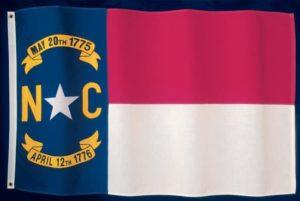
The Best Overall Campus Trade Schools in North Carolina
North Carolina works in collaboration with several industries and training programs to make sure that companies have the skilled professionals they need to fill crucial jobs. North Carolina’s career and technical education enables students to gain the essential skills and expertise within a few years of study.
The state has committed to delivering quality vocational education to residents. During 2013-2015, Governor Pat McCrory made budget recommendations that would offer an additional $32 million to community colleges supporting programs in technology training and engineering. He also recommended that $28 million be allocated for equipment and infrastructure for North Carolina’s community college system over the following years.
Healthcare industries are a growing sector in North Carolina. Popular professions among vocational students include dental hygienists, medical assistants, nursing assistants, and registered nurse jobs. With 100 community healthcare facilities/hospitals, four acclaimed medical schools, six research hospitals, and private organizations such as LabCorp, Pfizer, and Novo Nordisk, the state’s vocational students can utilize their training and education in a variety of healthcare settings.

Asheville-Buncombe Technical Community College
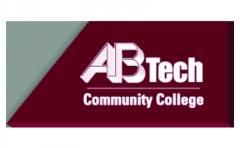
Asheville-Buncombe Technical Community College has six campus headquarters located in North of Fletcher to Marshall. Two-year degree programs are taught in allied healthcare, applied technology, and emergency services. Classroom, hands-on or laboratory instructions and theory are all part of the school’s trade training and education programs. Graduates can work in construction, civil engineering, criminal justice, culinary, and medical billing and coding. Registration for degree programs must be completed before deadlines. Students can enjoy several student support services such as academic advising, computer laboratories, writing center, tutoring services, academic learning facilities, and other learning resources. Distance learners can access InfoBase, Moodle, Student Email, and WebAdvisor.

Fayetteville Technical Community College
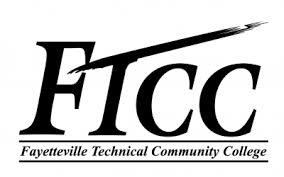
Fayetteville Technical Community College prepares learners to work in different areas of study such as culinary arts, healthcare management, business, hospitality, global logistics and distribution, HVAC, and automotive. Classes are held in two different locations, namely Fort Bragg Center and Spring Lake Campus. High School Connections is a member of the state’s Career and College Promise program. Through this initiative, high school students enroll in college courses together with their required secondary curriculum. The Student Learning Center, Children’s Center for learners who are parents, university outreach, and student advising are some of the student support services that they can utilize. Graduates can explore relevant careers using the school’s online job board.

Guilford Technical Community College
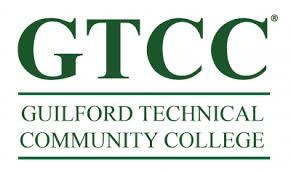
Guilford Technical Community College offers early and traditional registration. Established in 1958, the school accepts applications via its open admissions policy at each of its four headquarters. Culinary arts, horticulture, construction management technology, entertainment technology, nursing, and electronics engineering are some of the programs offered by this community college. The school has a co-enrollment engineering program collaboration with North Carolina AT&T State University. Through this agreement, all academic credits in Guilford Technical Community College’s engineering program transfer into North Carolina AT&T State University’s four-year bachelor’s degree program.

McDowell Technical Community College
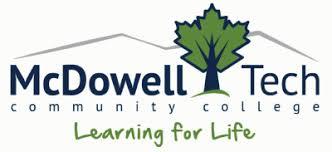
McDowell Technical Community College is headquartered in Marion, North Carolina, that offers Associate of Applied Science degree programs in nursing, electrical systems, industrial systems, and general occupational, vocational specializations. Its small business facilities offer magazines and pamphlets, counseling, and trade journals to area entrepreneurs, including graduates of its trade degree programs who plan to pursue business ventures. Applications are accepted in person through the school’s Student Services Offices. Placement examinations are also conducted on campus. Prospective students are recommended with an adviser to plan their class schedules.

Pitt Community College
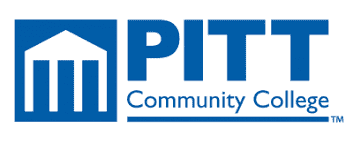
Pitt Community College provides associate of applied science degree programs in different vocational fields such as industrial management technology, nursing, HVAC, mechanical engineering, office administration, industrial systems technology, and welding. Also, the school provides select continuing education classes to assist students in preparing for licensing and certification requirements. A work-based learning format is one option in which learners can utilize their professional experience to obtain academic credits. For 160 hours of professional experience, eligible students can receive one-semester credit. All freshmen students are required to attend new student’s orientation regardless of the program that they are enrolled.

The Best Overall Online Trade Schools in North Carolina
North Carolina trade and vocational schools provide several online educational opportunities to in-state online students. Through online programs, learners can study from many of North Carolina’s most prestigious academic institutions, completing lectures and assignments through distance learning and at their convenience. eLearningNC suggests that distance learning is an optimal learning format, as distance learners retain information much better than their on-campus counterparts.
Academic institutions in the state have gained benefits from different state support initiatives and programs. North Carolina has an online learning commission that emphasizes making sure that its 58 community colleges, 36 private institutions, and the University of North Carolina systems of schools all advocate student success through online learning. The state’s distance learners also benefit from North Carolina’s membership in the Southern Regional Educational Board. The membership offers students who are enrolled in select out-of-state programs with in-state tuition rates; it applies to all students studying a program not offered within their state. Active duty military men and women, as well as their families, also qualify for in-state tuition in North Carolina.

Cape Fear Community College
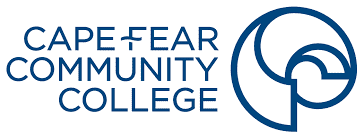
Cape Fear Community College is one of the bigger vocational schools in Wilmington, North Carolina, with a student population of more than 23,000. It has over 60 trade degree programs that attract both traditional and distance learners. As a commitment to its excellent academics, graduates from some of the degree programs have 100% passing rates on certification examinations. The trade programs fall into six major categories, namely vocational, allied health services, public service, business technologies, marine technology, and engineering technology. Among its most popular programs are basic law enforcement training and truck driver training. Some of the school’s programs have work-based learning formats.

Edgecombe Community College
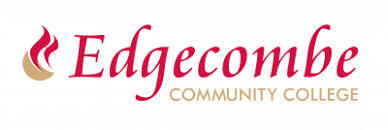
Edgecombe Community College is considered one of the best trade schools in Tarboro, North Carolina, through its affordable tuition rates, highly-qualified professors, and distance learning programs. Adult students will be in good company since the average age of students is 30 years old. Despite its main campus located in Tarboro, learners can also study at the college’s Rocky Mount location where high-tech facilities enable healthcare students to train and learn in a simulated hospital setting. There are over 200 education programs at the school. These programs include work-based learning that offers credit for employment and online programs that result in certificates, diplomas, or degrees. Early childhood education, business administration, and engineering are some of the few offerings for online students.

Forsyth Technical Community College
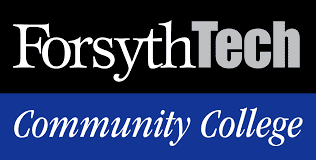
Forsyth Technical Community College is another option as one of the top career schools in Winston-Salem, North Carolina. It has progressed since its establishment in 1960 to deliver not only trade programs but academic degree programs as well as continuing education courses. Known as Forsyth Tech, the college enrolls more than 11,000 learners per year at ten campus and learning facilities. When it comes to CTE certification training in North Carolina, Forsyth Tech has several options. Its CareersNOW classes prepare learners for new careers in six months or less. These classes cover a variety of occupations, such as phlebotomy, basic construction, carpentry, and education. Career diploma, certificate, and degree programs are available in several other areas of interest. For distance learners, there are programs in medical terminology, medical coding, and substitute teacher training.

Johnston Community College
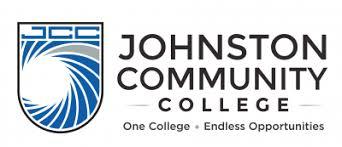
Johnston Community College aims to meet the needs of a variety of students, enrolling more than 13,000 learners each year. It provides transfer program options as well as trade education. Dual enrollment opportunities mean high school students can obtain college credit before their graduation. Considered as one of the best career and technical academic institutions in Smithfield, North Carolina, the school has no shortage of trade learning options. Through the school’s Career in a Year Initiative, learners can select from more than 70 certificate and diploma programs that will allow them to join the workforce immediately or meet North Carolina’s CTE certification eligibility requirements. There are more extended degree programs in the fields of Nursing and Applied Engineering. Furthermore, the college hosts the Johnston County Apprenticeship Program for students seeking hands-on learning.

Lenoir Community College
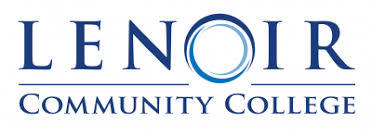
Lenoir Community College’s learners can study at one of nine campus headquarters or choose to enroll in online classes. Through the school’s academic and support programs, it provides innovative educational programs. As a concrete example, the Lenoir Community College Manufacturing Academy is committed to preparing professionals to fill-in career prospects at local industry partners, while the Minority Male Success Initiative pursues to develop retention and graduation rates among qualified students. Students can obtain degrees, diplomas, and certificates, either on-campus or distance learning at LCC. Program offerings range from aviation management and career pilot technology to welding technology. Furthermore, accelerated 5-week classes are available during summer, and more than 50 programs can be completed 100% online.

Pamlico Community College

Pamlico Community College is considered a military-friendly community college that is known for its high graduation rate and low student-faculty ratio. It was acknowledged by The Aspen Institute, a not-for-profit, and non-partisan think tank, as being one of the top 150 schools for the 2020 Aspen Prize for Community College Excellence. Established in 1962, the community college offers a great learning environment, enrolling lesser than 500 students per year. The school breaks down its programs into three major categories: cultural and life enrichment, academic programs, and continuing education. Within the academic offerings are transfer programs as well as vocational education for fields such as cosmetology, and electrical systems technology. The school grants certificates and degree programs, depending on the programs of interest.

Stanly Community College
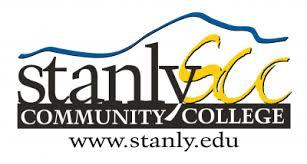
Stanly Community College has been meeting the academic-related needs of students from different walks of life, providing them transfer degrees, adult education, and vocational training. SCC participates in the American Association of Community Colleges Pathways Project, which is proposed to make sure its curriculum is aimed to maximize students’ success. The vocational programs in this community college range from health sciences to advanced manufacturing. Students who are interested in pursuing an HVAC degree can enroll at SCC. Moreover, the school is reputable for its innovative and comprehensive competency-based learning program in Information Technology. The program enables learners to obtain credit for previous experience as they progress through the curriculum at their convenience and timeframe of learning.

Wayne Community College

Wayne Community College offers certificates, diplomas, career skills training, and associate degree programs in affordable and high-quality learning. With more than 50 years of academic excellence, Wayne Community College has long been holding the reputation of meeting the needs of learners from different backgrounds. Currently, the school offers online classes, short-term training, dual education, and evening programs. With more than 100 offerings to choose from, students are ensured to find programs that are suitable for their preferences and needs. Several certificates, diplomas, and associate degree programs can be completed entirely online, including the school’s popular options in dental hygiene, medical billing, and business. The school also provides training in growing healthcare professions such as medical assisting and practical nursing.
Are you looking for an interesting trade that you can pursue as a career? Check this out: 30 High Paying Trade School Degrees and Jobs 2020

The Best Diesel Mechanics Trade Schools in North Carolina – Campus and Online

Thanks to the growing transport sector in the U.S., there is an increasing demand for skilled diesel mechanics. Students who want to change their lives and improve their earning potential may choose a diesel mechanic program in North Carolina. There are several schools with diesel mechanic programs in North Carolina, including community colleges and vocational schools. The average cost of tuition in the state is $2,214, which is relatively less compared to other schools in different states.

There are no licensing requirements in the state of North Carolina for diesel mechanics, making it an attractive state for students who want to begin their careers immediately after completing their degrees. ASE Certification is a nationally-recognized and optional standard for automobile specialists. Students who have met the education and employment requirements of the ASE Certification can sign up for the examinations they want to take. If students pass the exam, they obtain ASE Certification for five years.
The career outlook for diesel mechanics across the U.S. is promising. The Bureau of Labor Statistics projects 5% career growth for diesel mechanics between 2018-2028. Job openings for diesel mechanics are projected to grow by 6% in North Carolina through 2020, according to O*Net. The wage as a diesel mechanic depends on several factors, including employer, work experience, and seniority. Typically, they can earn between $27,700-$56,600 per year. The median wage for diesel mechanics in North Carolina is $39,800 per year.

Guilford Technical Community College
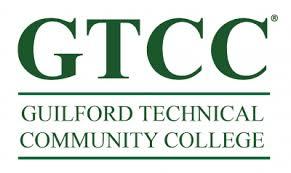
Guilford Technical Community College offers Diesel Programs for several years and has trained students for businesses in North Carolina and beyond. The school’s modern state-of-the-art facilities and educational program will ensure that they receive training and education to an excellent degree. The program teaches foundational knowledge and expertise that students need to qualify for career opportunities in heavy-duty vehicles and diesel-powered equipment. Learners will gain insight into the principles, construction features, and purpose of the operation of medium and heavy-duty vehicles. Sample courses include Preventative Maintenance, Transp Climate Control, Basic Transp Electricity, Suspension and Steering, and Mechanical Transmissions. The number of required credit hours for the diploma program is 42 credits, while the certificate program is 15 credits.
- Official Program Name: Diesel and Heavy Equipment Technology
- Program Level: Certificate, Diploma
- Learning Format: On-Campus
- Financial Aid: Scholarships, State, Federal, and School-based Awards, Student Loans, Grants, Federal-Work Study Programs

Forsyth Technical Community College
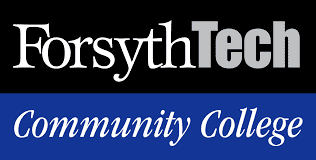
Forsyth Technical Community College has a Diesel and Heavy Equipment Technology program that provides students with training in air brakes, electronic engine controls, drive train and air conditioning/heating systems, diesel engine repair, mechanical transmissions; preventative maintenance; suspension and steering systems; and electrical systems. Students in the associate program must have 72 credits for the graduation of the program. The core courses consist of Basic Welding Processes, Preventative Maintenance, Basic Transp Electricity, Mechanical Transmissions, Suspension, and Steering.
- Official Program Name: Diesel and Heavy Equipment Technology
- Program Level: Certificate, Diploma, Associate
- Learning Format: On-Campus
- Financial Aid: Grants, Scholarships, Student Loans, Federal-Work Study Programs

Davidson County Community College
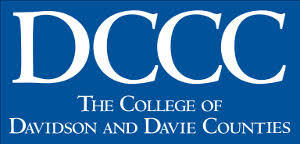
Davidson County, Community College’s Diesel and Heavy Equipment Technology program, prepares students for employment as entry-level transportation service specialists. It offers an introduction to diesel and heavy equipment industry professional pathways and expands students’ awareness of diverse technologies related to this challenging industry. Students are required to take core diesel courses, including Introduction to Transport Technology, Diesel Fuel and Power System, Electronic Engines, Advanced Hydraulics, and Medium/Heavy Duty Brake Systems.
- Official Program Name: Diesel & Heavy Equipment Technology
- Program Level: Associate, Certificate, Diploma
- Learning Format: On-Campus
- Financial Aid: Federal and State Grants; Scholarships; Student Loans; Federal-Work Study

Wake Tech

Wake Tech offers a diesel and heavy equipment technology program that prepares students for the technical knowledge and capabilities needed to repair, diagnose, maintain and service diesel engines in vehicles such as ships, buses, heavy-duty trucks, equipment, railroad locomotives as well as stationary diesel engines in electrical equipment, generators, and other related components. Required coursework includes Introduction to Transport Technology; Basic Transportation Electrical Lab; Transportation Climate Control Lab; Basic Welding for Transportation; and Electronic Engines. Graduates of the program may be eligible to take professional licensure examinations, which correlate to specific areas of study and to join in the workforce as entry-level technicians in the transportation sector.
- Official Program Name: Diesel and Heavy Equipment Technology
- Program Level: Certificate, Diploma, Associate
- Learning Format: On-Campus
- Financial Aid: Grants; Work-Study Programs; Loans; Scholarships

Central Piedmont Community College

Central Piedmont Community College has an Associate in Applied Science-Diesel and Heavy Equipment Technology that has partnered with Carolina CAT/LiftOne to develop the Carolina CAT Service Technician Program to meet the standards for high-tech and hands-on professions. The program has been certified by the National Automotive Technicians Education Foundation and highlights state-of-the-art transmission, electrical laboratories, hydraulic, and engines that maintain the current diagnostic components. Students can either enroll in the associate, certificate, or diploma program, with a different number of credits for graduation. Sample courses include Diesel Engines, Basic Welding for Transportation, Suspension and Steering, Transportation Climate Control, and Introduction to Transport Technology.
- Official Program Name: Diesel and Heavy Equipment Technology
- Program Level: Associate, Diploma, Certificate
- Learning Format: On-Campus
- Financial Aid: Student Loans; Grants; Scholarships; Veterans Affairs Education Benefits
For online learning options, see our Best Online Schools for Diesel Mechanics Programs

The Best Pharmacy Technology Trade Schools in North Carolina – Campus and Online

Students who have an interest in the growing field of healthcare can consider a pharmacy technician profession. As a pharmacy tech, they work under the supervision of a licensed pharmacist, preparing medicines. Their duties include keeping accurate records of dosages of prescribed medications, mixing and measuring liquids, labeling prescriptions, and counting pills. In North Carolina, there are several opportunities in healthcare and pharmacy technician sectors.
Students must have a high school diploma or equivalent or be registered in a high school diploma program to become a pharmacy technician in North Carolina. Registration to the North Carolina Board of Pharmacy requires candidates to be employed by a pharmacy holding a valid in-state permit and to earn a training program offered by the pharmacist.
The training fundamentals conducted by a pharmacist will include record-keeping and documentation, calculations, pharmacy laws and regulations, handling and storage of medicines, and dispensing systems and requirements for labeling. Students can also obtain registration in North Carolina if they have a certification through the Pharmacy Technician Certification Board (PTCB).
According to the Bureau of Labor Statistics, the pharmacy technician industry is expected to grow 7% from 2018-2028, faster than the average for all occupations. There are numerous reasons for the higher demand for prescription medications, including the aging population and higher rates of chronic diseases among all age populations.
In 2018, the median annual wage for pharmacy technicians was $32,700. This indicates that half of all those who had worked for this position earned more, and the other half earned less. The annual mean wage for North Carolina pharmacy tech is $30,890, and the hourly rate is $14.85.

Fayetteville Technical Community College
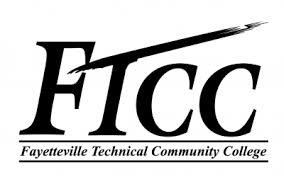
Fayetteville Technical Community College runs an Associate in Applied Science-Pharmacy Technology program that has garnered accreditation from the Pharmacy Technician Accreditation Commission. It prepares students to assist pharmacists in duties as well as perform legally within the boundaries mandated by the employment agencies and pharmacists. Students must have 67 credits for completion of the program. Sample courses include Basic Anatomy and Physiology; Career Assessment; Trends in Pharmacy; Community Pharmacy; and Introduction to Computers.
- Official Program Name: Pharmacy Technology
- Program Level: Associate
- Learning Format: On-Campus
- Financial Aid: Veteran’s Educational Benefits; Grants; Student Loans; Scholarships; Workforce Investment Act; Work-Study Programs

Guilford Technical Community College
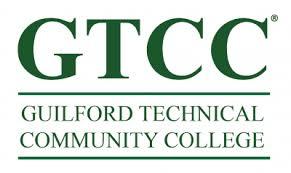
Guilford Technical Community College’s Pharmacy Technology Program provides interactive, hands-on learning in laboratory facilities and experiential rotations through local pharmacies. The program receives accreditation from the American Society of Health-Systems Pharmacists. It prepares students to sit for examinations to become nationally-certified through the Pharmacy Technician Certification Board. Individuals are ready to assist pharmacists in roles and responsibilities that a pharmacy technician can legally work and to perform within the boundaries authorized by the pharmacist and the employment agency. Students complete courses in Pharmacy Professional Practice; Pharmacy Calculations; Pharmacology; Pharmacy Dosage Forms; and Hospital Pharmacy. An associate degree requires 65 credits, while the diploma program requires 37 credits for graduation.
- Official Program Name: Pharmacy Technology
- Program Level: Diploma, Associate
- Learning Format: On-Campus, Hybrid
- Financial Aid: Scholarships; State, Federal, and School-based Awards; Student Loans; Grants; Federal-Work Study Programs

Stanly Community College
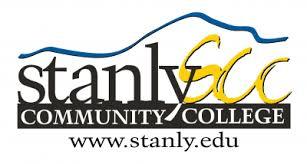
Stanly Community College has a pharmacy technology program where students can choose either a certificate, diploma, or associate level of completion. The associate program requires 75 credits, the diploma requires 40 credits, and the career and college promise program requires 17 credits. They complete required courses, including Introduction to Pharmacy; Pharmacology I; Pharmacy Calculations; Pharmacy Practice I; and College Student Success. The program is offered in an AGE Pathway where students start their academic journey by completing all the general education requirements.
- Official Program Name: Pharmacy Technology
- Program Level: Certificate, Diploma, Associate
- Learning Format: On-Campus
- Financial Aid: Veteran Benefits; Student Loans; Work-Study Programs; Federal Grants; Scholarships; Emergency Fund Program; Emergency Loan Program

Forsyth Technical Community College
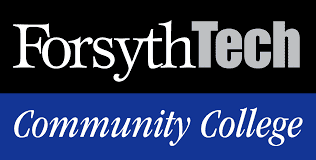
Forsyth Technical Community College’s Pharmacy Technology program prepares graduates to assist the pharmacist in duties that personnel can legally perform and to work within the boundaries prescribed by the employment agency and pharmacist. Graduates may be qualified to take the National Certification Examination to become a certified pharmacy tech. This 71-credit pharmacy technology program has required courses in Pharmacy Calculations; Introduction to Pharmacy; Trends in Pharmacy; Community Pharmacy; and Pharmacy Dosage Forms.
- Official Program Name: Pharmacy Technology
- Program Level: Diploma, Associate
- Learning Format: On-Campus
- Financial Aid: Grants; Scholarships; Student Loans; Federal-Work Study Programs

Johnston Community College
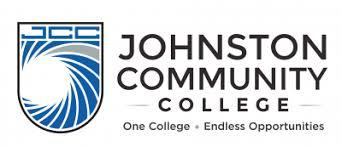
Johnston Community College offers an Associate of Applied Science-Pharmacy Technology program that earned accreditation from the American Society of Health-System Pharmacists/Accreditation Council for Pharmacy Education. Learners will prepare prescription medications, update patient records, mix solutions, and other specialized medications, gather data utilized by pharmacists to monitor drug therapy and maintain inventories and medications. Students must have 67 credits for completion. Sample courses include Sterile Products; Trends in Pharmacy; Hospital Pharmacy; Introduction to Ethics; and Pharm Dosage Forms.
- Official Program Name: Pharmacy Technology
- Program Level: Associate
- Learning Format: On-Campus
- Financial Aid: Federal and State Grants; Scholarships; Emergency Loans for Books; Veteran Benefits; Alternative/Private Loans
For an online option, see: OSC’s Choices For Online Trade Pharmacy Technology Certificate Programs

The Best Criminal Justice Trade Schools in North Carolina – Campus and Online

Students pursuing a career in criminal justice must consider that several law enforcement agencies require a two-year or a four-year degree. Although some agencies accept degrees from programs in different areas of interest, candidates who hold a criminal justice-related degree may receive preferential status in the hiring process or offered a higher starting wage. Financial aid opportunities specific to North Carolina residents include Golden LEAF Scholars Program, the State Employees Association of North Carolina Scholarship, and the North Carolina Student Incentive Grant. Students’ eligibility depends on their financial needs; however, there are merit-based scholarship programs as well.
Recent graduates who are seeking their first criminal justice position should carefully research the job description of each prospective role. Several jobs that involve laboratory forensics will also require science-based training and education. The most popular entry-level criminal justice positions are court staff, corrections officers, and local police officers. Career finders must consider career opportunities at the federal and state levels to increase their chances of finding appropriate employment.
Legal assistant and protective services careers are among the most popular paths for criminal justice majors. The demand for both of these fields is projected to rise on a national level. The U.S. Bureau of Labor Statistics reveals that protective services careers in the state pay a mean annual wage of $38,610.
Whether it is a young student who is just starting his or her post-secondary education or an experienced professional who is looking for a career shift or career advancement, obtaining a criminal justice degree can have numerous benefits. In addition to providing job stability and lucrative salaries at the management levels and in the private sectors, the criminal justice industry is expected to continue its trend of promising growth as more and more government facilities and private sectors seek to increase security and law enforcement personnel.

Asheville-Buncombe Technical Community College
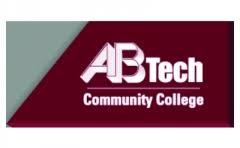
Asheville-Buncombe Technical Community College has an Associate in Applied Science-Criminal Justice Technology that is designed to provide expertise and knowledge of criminal justice systems and methodologies. Sample courses include Quantitative Literacy; Constitutional Law; Professional Research and Reporting; Introduction to Criminal Justice; Writing and Inquiry; and Success and Study Skills. A total number of 65 credits is required for the completion of the program. All courses require a grade of “C” or better.
- Official Program Name: Criminal Justice Technology
- Program Level: Associate
- Learning Format: On-Campus
- Financial Aid: Scholarships; Federal and State Grants; Direct Loans; Work-Study Programs

Pitt Community College
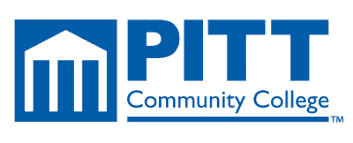
Pitt Community College’s criminal justice technology program will provide graduates with the essential skills and training they need to be marketable in the job market. They will demonstrate how crime and criminal justice procedures and concepts interact and intersect to offer well-planned justice administration. Sample courses include Investigative Photography, Juvenile Justice, Law Enforcement Operations, Ethics, and Community Relations, and Introduction to Criminal Justice.
- Official Program Name: Criminal Justice Technology
- Program Level: Associate
- Learning Format: On-Campus
- Financial Aid: Grants; Scholarships; Federal Work-Study Employment; Federal Loans

Guilford Technical Community College
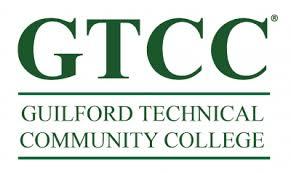
Guilford Technical Community College offers Criminal Justice Technology programs that can be completed on-campus or entirely online. The program is designed to deliver practical knowledge of criminal justice processes and procedures. The training emphasizes on federal, local and state law enforcement, corrections & security services, and judicial procedures. The certificate programs are offered in four specializations, namely Homeland Security, Intervention, Criminal Justice Foundations, and Law Enforcement Management. Sample courses include Criminal Law, Ethics and Community Relations, Court Procedures and Evidence, Law Enforcement Operations, and Juvenile Justice. An associate degree program of criminal justice requires 66 to 68 credits for completion.
- Official Program Name: Criminal Justice Technology
- Program Level: Certificate, Associate
- Learning Format: On-Campus, Online
- Financial Aid: Scholarships; State, Federal, and School-based Awards; Student Loans; Grants; Federal-Work Study Programs

Stanly Community College
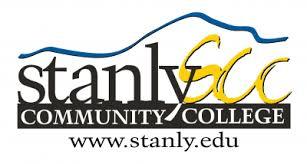
Stanly Community College’s criminal justice technology program is designed to help students in the application of ethical decision-making procedures to criminal justice challenges, describing modern techniques and methodologies of criminal investigations, composing written communication for criminal justice concepts, and identifying contemporary theories in criminal justice. This 66-credit criminal justice program has core required courses such as Juvenile Justice, Crisis Intervention, Court Procedure & Evidence, Constitutional Law, and Ethics and Community Relations.
- Official Program Name: Criminal Justice Technology
- Program Level: Diploma, Certificate, Associate
- Learning Format: On-Campus, Online
- Financial Aid: Veteran Benefits; Student Loans; Work-Study Programs; Federal Grants; Scholarships; Emergency Fund Program; Emergency Loan Program

Forsyth Technical Community College
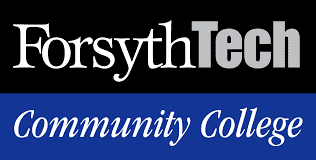
Forsyth Technical Community College has a Criminal Justice Technology program that is designed to deliver knowledge of criminal justice procedures and processes. The program emphasizes on federal, local and state law enforcement, security services, corrections, and judicial processes. Students are required to have 64 credits for the graduation of the program. They complete core criminal justice courses such as Investigative Principles, Juvenile Justice, Criminal Law, Introduction to Criminal Justice, and Prof Research and Reporting.
- Official Program Name: Criminal Justice Technology
- Program Level: Certificate, Associate
- Learning Format: On-Campus
- Financial Aid: Grants; Scholarships; Student Loans; Federal-Work Study Programs
See our picks for the Top 20 Online Schools for Bachelor of Criminal Justice Degree Programs and check this out: Forensic Sketch Artist via Criminal Justice Degree Programs

The Best Horticulture Trade Schools in North Carolina – Campus and Online


A horticulturist is a person who utilizes scientific knowledge to propagate and cultivate plants and then make use of this scientific knowledge to deliver technical information to fruit, flower, vegetable growers as well as farmers. He or she will perform experiments and pest & disease investigations with enhanced varieties of plants with higher resistance to diseases. They will also work in the field of landscaping design to develop gardens, parks, and recreational areas to preserve natural resources. Some of them work in the mining sector, assisting in regenerating degraded land.
Horticulture is a division of agriculture which primarily deals with the reproduction of plant life. It involves the cultivation and management of lands and gardens. A horticulturist in North Carolina can establish in several roles, but as a general rule of thumb, these are professional experts in the growth and development of food and other types of plants. They can work in education, government, industry, or private sectors.
The majority of horticulturists work outside, in laboratories or greenhouses, depending on the nature of their specialized work. Typically, working in the horticulture industry involves several hands-on tasks. Whether harvesting, pruning, or planting, there is a lot of physical activity required. While they tend to work on regular hours, their workload gets busier during the planting and harvesting periods.
The average wage for a horticulturist in the U.S. is around $49,108 annually. Salaries generally start from $37,240 and increase up to $107,499. In North Carolina, a horticulturist earns an average of $90,370, which is 52% above the national average. The state ranks #1 in the salary range of horticulturists in the United States. There are an estimated 1,028,700 horticulturists in the country. The horticulturist labor market is projected to decrease by -0.8% between 2016 and 2026. Over the next decade, the country is expected to lose 6,500 horticulturists as the retirement of 1,500 existing horticulturists looms.

Pitt Community College
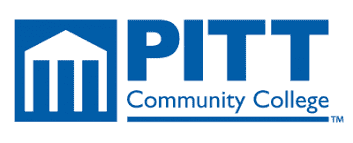
Pitt Community College’s horticulture technology program provides students the essential tools required to be successful in the Green Industry, one of NC’s biggest industries. Students obtain hands-on experience through different live landscape projects and working in Pitt’s state-of-the-art on-campus greenhouse complex. Sample courses include Horticulture Pest Management, Horticulture Management, and Marketing, Landscape Construction, Introduction to Turfgrass Cult & ID, and Plant Propagation.
- Official Program Name: Horticulture Technology
- Program Level: Associate
- Learning Format: On-Campus
- Financial Aid: Grants; Scholarships; Federal Work-Study Employment; Federal Loans

Guilford Technical Community College
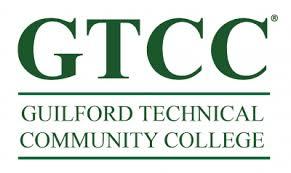
Guilford Technical Community College has Turfgrass Management programs that provide learners with the necessary skills, instructions, and expertise for a fulfilling career in the turfgrass sector. The program has a curriculum that is aimed at getting students into the workforce quickly and efficiently. Students also receive training from state-of-the-art facilities using industry-standard guidelines and protocols. It is developed to deliver essential skills to perform roles and responsibilities related to the management of sports field, golf courses, sod production, lawn care, and irrigation design. Students can either enroll in the associate degree program or certificate programs. Students complete core required coursework in Turfgrass Equipment Management; Turfgrass Calculations; Landscape Construction; Spring Gardening Lab; and Turfgrass Pest Control.
- Official Program Name: Turfgrass Management
- Program Level: Certificate, Diploma, Associate
- Learning Format: On-Campus
- Financial Aid: Scholarships; State, Federal, and School-based Awards; Student Loans; Grants; Federal-Work Study Programs

Forsyth Technical Community College
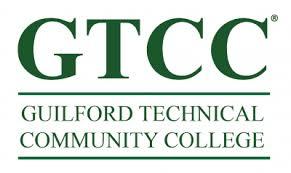
Forsyth Technical Community College’s Horticulture Technology program emphasizes the general production and management of plants, groundcovers, flowers, shrubs, and plant-related components; basic scientific principles required to understand plants and their care and management; and management of the business and technical operations connected with horticultural services. A total of 72 credits is needed for the graduation of the program. Sample courses include Landscape Construction, Plant Propagation, Greenhouse Operations, Basic Landscape Technique, and Hort Pest Management.
- Official Program Name: Horticulture Technology
- Program Level: Certificate, Associate
- Learning Format: On-Campus
- Financial Aid: Grants; Scholarships; Student Loans; Federal-Work Study Programs
Recommended Schools

Wayne Community College

Wayne Community College offers a turfgrass management technology program that prepares students for different careers in horticulture. Classroom training and practical laboratory experiments of horticulture concepts and principles are integrated into the program of study. It emphasizes on turfgrasses and related plants and prepares learners to enhance recreational or ornamental grasses and other associated products. Students must have 65 credits for completion of the program. The program’s core courses include Landscape Maintenance, Turfgrass Irrigation and Design, Introduction to Horticulture, Agricultural Accounting, and Turfgrass Management Apps.
- Official Program Name: Turfgrass Management Technology
- Program Level: Associate
- Learning Format: On-Campus
- Financial Aid: N/A
Additional online options to consider: Best Online Trade Schools for Horticulture Programs

The Best Culinary Trade Schools in North Carolina – Campus and Online

Located on the East Coast, North Carolina is a culinary paradise that brings together East Coast and Southern cuisine styles of culinary. There are more than 9.8 million residents in North Carolina, but the state also has an active tourism sector that brings thousands of visitors to the state every year. The majority of tourists visit major cities in North Carolina, including Charlotte, Greensboro, and Raleigh. Despite all of the attractions in the state, the cost of living is slightly lesser than the national average.
The state’s reliance on educated, skilled chefs is evident when students consider the 22 culinary schools in North Carolina. These academic institutions provide a variety of certificate and associate degree programs. The average tuition cost in North Carolina is $5,322, which is partially balanced by the average scholarship grant of $1,593. With an average acceptance rate of 51%, students must put their best foot forward while applying.
Whether they choose a certificate or associate degree, students may learn much of the same education and training. Instead of starting with lots of book knowledge, students can jump-start their culinary training and education by obtaining lots of hands-on training. While it is also important to have book knowledge, students need practical cooking skills to work in the kitchen setting. They move from basic preparation work to advanced cooking techniques as they move forward through the program.
North Carolina is home to several prestigious culinary employers such as Ovations Food Services, Norwegian Cruise Line, and Landry’s Restaurants. Most chefs work for restaurants; however, graduates may find careers as a private chef or caterer. The state offers a fair amount of freedom to chefs and cooks since North Carolina does not require any certification or licensure to work. However, there are certification programs that are optional to help graduates get a job. The American Culinary Federation is one of the best certification programs known in the country.
As a chef/cook, salaries can be determined by several factors. The most crucial factor is generally working experience. The more experience a person has, the more money they can make starting and the more potential they have to increase their earning power.
Asheville-Buncombe Technical Community College
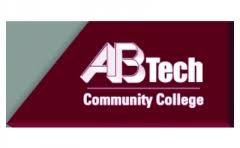
Asheville-Buncombe Technical Community College’s culinary arts programs have garnered accreditation from the American Culinary Federation. The program provides rigorous training necessary for students to assume positions as professional culinary personnel in several food and beverage settings such as healthcare facilities, catering operations, full-service restaurants, contract foodservice, and beach resorts. This 76-credit culinary arts program has core courses such as Beverage Management, Sanitation and Safety, Garde Manager, Cost Control-Food and Beverage, and Food Science.
- Official Program Name: Culinary Arts
- Program Level: Associate
- Learning Format: On-Campus
- Financial Aid: Scholarships; Federal and State Grants; Direct Loans; Work-Study Programs

Guilford Technical Community College
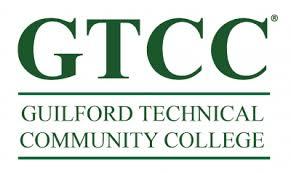
Guilford Technical Community College offers a Culinary Arts program, considered as one of the only two North Carolina culinary institutions that have received accreditation from the American Culinary Federation’s Educational Institute at the Exemplary level. The culinary arts program offers specific training needed to prepare students to earn positions as trained culinary professionals in several food service settings such as catering operations, hotels, full-service restaurants, resorts, healthcare facilities, and contract food service. Sample required culinary courses include Food and Beverage Service; Garde-Manger; Nutrition for Foodservice; Cost Control-Food & Beverage; and Sanitation and Safety.
- Official Program Name: Culinary Arts
- Program Level: Certificate, Diploma, Associate
- Learning Format: On-Campus
- Financial Aid: Scholarships; State, Federal, and School-based Awards; Student Loans; Grants; Federal-Work Study Programs

Central Piedmont Community College

Central Piedmont Community College has a Culinary Arts program that can either be taken as an associate degree or a certificate specialization. Students can choose from six certificate offerings, namely Culinary Skills, Culinary Arts, Certified Fundamentals Cook, Sustainable Food Systems and AgriTourism; Cold Foods; and Baking. Certificate programs require 13-16 credits for completion, while the associate equivalent requires 74 credits for graduation. Students will complete required culinary courses such as Menu Design, Nutrition for Foodservice, Culinary Skills, Food and Beverage Service, Sanitation and Safety, and Success in Hospitality Studies.
- Official Program Name: Culinary Arts
- Program Level: Certificate, Associate
- Learning Format: On-Campus
- Financial Aid: Student Loans; Grants; Scholarships; Veterans Affairs Education Benefits
Do you need an online program? If so, see our picks for America’s Top Online Culinary Schools

The Best HVACR Tech Trade Schools in North Carolina – Campus and Online

Being employed as a Heating, Ventilation, Air Conditioning, and Refrigeration (HVAC-R or HVAC) professional in North Carolina can mean stable employment and opportunities for career advancement. The demand for these skilled professionals is projected to grow around the nation as well as North Carolina.
Not only that, the wage prospects are promising for HVAC Technicians in North Carolina, but there are also several professional associations and resources for these climate-control technicians. The Bureau of Labor Statistics says HVAC Workers and Technicians around the country made an annual average wage of $50,160. The figure is almost the same as the mean annual salary of all occupations at $51,960 and is relatively generous payment in a career that does not require a four-year bachelor’s degree program.

In the state, there is also a wealth of HVAC and trade associations to deliver mentoring, legal advocacy, job posting boards, and continuing education opportunities in this profession. As a concrete example, the Plumbing-Heating-Cooling Contractors Association of North Carolina is primarily committed to the advancement of the methodologies and technologies in HVAC and the advocacy of rigorous safety standards for all professionals. This department of the PHCCA conducts training and organizes events as well as it serves as a voice for members of this industry. The Refrigeration Service Engineers Society has succeeding North Carolina associations and chapters.
HVAC Technicians in North Carolina may specialize in commercial heating, radiant heating, solar panels, and other HVAC-related specializations, or they have core general knowledge of several HVAC systems and requirements. Prospective candidates for the HVAC field must be aware that there is one mandatory certification for all HVAC workers/technicians in the United States who work with the reuse and recovery of refrigerants – the EPA Section 608 Credential. This certification guarantees that an HVAC technician uses the proper methods in moving, recycling, or replacing materials that are hazardous to the environment.

Pitt Community College
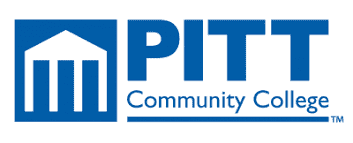
Pitt Community College’s HVAC-R program can either be completed as an associate, certificate or diploma program. Learners who are enrolled full-time and making satisfactory learning progress can earn their degree in five semesters. They complete major courses such as Residential System Designs, Heat Pump Technology, Schematics and Diagrams, HVACR Customer Relations, and Commercial HVAC Controls.
- Official Program Name: Air Conditioning, Heating, and Refrigeration
- Program Level: Certificate, Diploma, Associate
- Learning Format: On-Campus
- Financial Aid: Grants; Scholarships; Federal Work-Study Employment; Federal Loans

Fayetteville Technical Community College
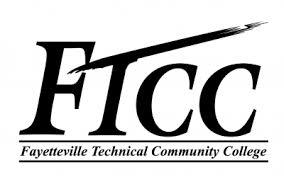
Fayetteville Technical Community College offers an HVAC-R program that delivers basic knowledge to enhance capabilities essential for employment in the HVAC-R industries. Students can either complete the program as an associate, certificate, or diploma program, varying program lengths, and credit requirements. Sample courses include Heating Technology, Hydronic Heating, Comfort Cooling, HVAC Systems Diagnostics, and HVAC Duct Systems. Graduates of the diploma level must be able to assist in the installation, service repair, start-up, and preventative maintenance of residential and commercial establishments, while the associate program graduates must demonstrate a comprehensive understanding of system selection.
- Official Program Name: Engineering & Applied Technology: A/C, Heating, and Refrigeration Technology
- Program Level: Certificate, Diploma, Associate
- Learning Format: On-Campus
- Financial Aid: Veteran’s Educational Benefits; Grants; Student Loans; Scholarships; Workforce Investment Act; Work-Study Programs

Guilford Technical Community College
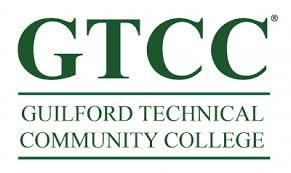
Guilford Technical Community College has an Air Conditioning, Heating, and Refrigeration Technology program that prepares learners for a career in the air conditioning industry. They have the option of pursuing either a diploma, certificate, or an associate’s degree program. The program focuses on a combination of Air Conditioning, Heating and Refrigeration theory, and applied knowledge essential for successful employment in the HVAC-R industry. The HVAC-R program is well-recognized in the industry and is the only program accredited by HVAC Excellence in North Carolina. The curriculum provides foundational knowledge to develop the expertise and skills required to work with light commercial and residential systems. The associate program requires 67 credits, the diploma program requires 46 credits, and the certificate program requires 17 credits for completion. The Core courses include HVACR Electricity, Heat Pump Technology, Heating Technology, Residential System Design, and Commercial System Design.
- Official Program Name: Air Conditioning, Heating, and Refrigeration Technology
- Program Level: Certificate, Diploma, Associate
- Learning Format: On-Campus
- Financial Aid: Scholarships; State, Federal, and School-based Awards; Student Loans; Grants; Federal-Work Study Programs

Stanly Community College
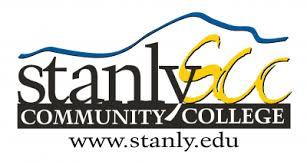
Stanly Community College offers an Air Conditioning, Heating, and Refrigeration Technology program that provides comprehension for a wide variety of AHR technologies. Students also exhibit industry-standard expertise and capabilities as well as the skills and expertise for Air Conditioning, Heating, and Refrigeration design methodologies. The 40-credit diploma program has core required courses such as Heat Pump Technology, HVACR Building Code; Introduction to Refrigeration; Print-Reading Construction; Mathematical Measurement and Literacy; and Comfort Cooling.
- Official Program Name: Air Conditioning, Heating, and Refrigeration Technology
- Program Level: Diploma, Certificate
- Learning Format: On-Campus
- Financial Aid: Veteran Benefits; Student Loans; Work-Study Programs; Federal Grants; Scholarships; Emergency Fund Program; Emergency Loan Program

Forsyth Technical Community College
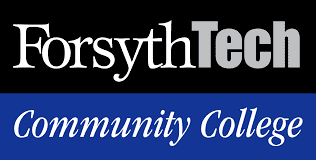
Forsyth Technical Community College’s Air Conditioning, Heating, and Refrigeration Technology program provides foundational knowledge to develop the skills and capabilities required to work with light commercial and residential establishments. Learners work with different tools, generate troubleshooting capabilities, electricity, controls, and system design with a focus on safety. They can either choose the day-time diploma program that requires 36 credits or the evening certificate program that requires 16 credits for completion. Students take required courses, including HVACR Electricity, Refrigerant Certification, Heat Pump Technology, HVAC Controls, and Residential System Design.
- Official Program Name: Air Conditioning, Heating, and Refrigeration Technology
- Program Level: Diploma, Certificate
- Learning Format: On-Campus
- Financial Aid: Grants; Scholarships; Student Loans; Federal-Work Study Programs
Our Online Trade Schools for HVAC-R Tech Programs provide distance learning options.

The Best Auto Repair Trade Schools in North Carolina – Campus and Online

Today is an excellent opportunity to start an auto mechanic journey in North Carolina. The automotive industry is booming all over the state, and it has converted to almost 2% job growth each year in auto mechanic careers. North Carolina is the birthplace of stock car racing, and the state has a more significant number of automotive manufacturing businesses throughout the region. The state is also home to NASCAR, one of the biggest automotive industries around the world. There is a burning passion for the automotive sector in the state, and it has boosted employment and helped to raise pay rates in several auto-related positions.
Residents of North Carolina who are seeking auto mechanic education can choose a one or two-year option from different schools throughout the state. One-year programs are generally limited to programs granting a certificate or diploma. The two-year option allows students to obtain an associate degree. Both options are integrated with the same coursework, which will prepare learners to start working as auto mechanics upon graduation of their respective programs.
Each academic institution has its admission process, and the rates of tuition differ. The curriculum of this program consists of classroom work and hands-on training. Students acquire knowledge about automotive procedures, techniques, and theories before applying them to use in an applied setting.

Obtaining professional experience as a North Carolina auto mechanic provides a wide range of functions. Initially, it offers real-world employment where auto mechanics can earn lucrative salaries providing auto repair and services. Second, it enables well-trained professionals in the field to develop the right skills needed for identifying and resolving engine-related problems. Lastly, mechanics can begin earning the credentials and relevant experience that will qualify them to sit for an ASE certification examination. Applicants who obtain an ASE certification or multiple other certifications are poised to advance in their careers faster.
There are over 40 certifications that auto mechanics can obtain by meeting the requirements and passing the examinations issued by the National Institute for Automotive Service Excellence. Because the areas of specializations for auto mechanics are not limited, certifications are open in a wide range of categories. The ASE certification is the most popular across the automotive industry.
An auto mechanic’s certification demonstrates professional knowledge and expertise and raises their credibility, so they have higher chances of landing lucrative positions.

Fayetteville Technical Community College
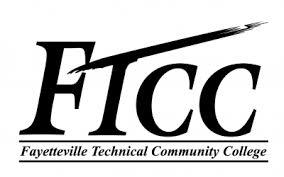
Fayetteville Technical Community College received accreditation status from the ASE Education Foundation and Ford. It also integrates the latest in concrete academic coursework, significant industry simulations, and automotive technology training. The program helps students who are passionate about cars and are interested in pursuing a career that is both technical and fulfilling. Classroom and laboratory training combines with academic and professional coursework. Students must have 66 credits for graduation. Sample courses include Engine Repair, Engine Performance, Advance Auto Electricity, Brake Systems, and PC Skills for Transportation.
- Official Program Name: Engineering & Applied Technology: Automotive Systems Technology
- Program Level: Associate, Certificate, Diploma
- Learning Format: On-Campus
- Financial Aid: Veteran’s Educational Benefits; Grants; Student Loans; Scholarships; Workforce Investment Act; Work-Study Programs

Guilford Technical Community College
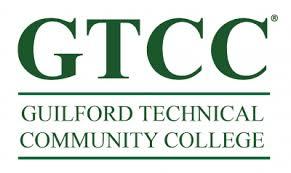
Guilford Technical Community College offers an Automotive Systems Technology program that prepares students for employment in the automotive service sector as automotive technicians. The curriculum is integrated with classroom and laboratory experiences with a combination of academic courses with hands-on learning in a shop setting. They complete courses such as Suspension & Steering System, Automotive Servicing, Advanced Automotive Electricity Lab, Engine Performance, and Transp Climate Control. Students must have 67 credits for graduation. After graduation, they are prepared for Automotive Service Excellence certification and prepared for employment in the automotive sector.
- Official Program Name: Automotive Systems Technology-General
- Program Level: Certificate, Diploma, Associate
- Learning Format: On-Campus
- Financial Aid: Scholarships; State, Federal, and School-based Awards; Student Loans; Grants; Federal-Work Study Programs

Stanly Community College
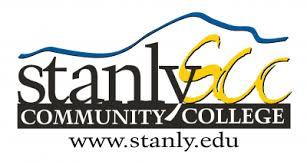
Stanly Community College offers a collision repair and refinishing technology program that prepares students to apply technical expertise to repair, refinish, and reconstruct vehicles before and after a collision. The program offers a concrete foundation in structural and body image estimating and analysis, servicing of both structural and non-structural in aluminum and steel. It also includes the repair of carbon fiber, plastics, fiberglass, and the usage of adhesives for steel and plastic. The 41-credit diploma program has core required courses such as Plastics and Adhesives; Body Shop Operations; Autobody Estimating; Introduction to Transport Technology; and Painting and Refinishing.
- Official Program Name: Collision Repair and Refinishing Technology
- Program Level: Diploma, Certificate
- Learning Format: On-Campus
- Financial Aid: Veteran Benefits; Student Loans; Work-Study Programs; Federal Grants; Scholarships; Emergency Fund Program; Emergency Loan Program

Haywood Community College
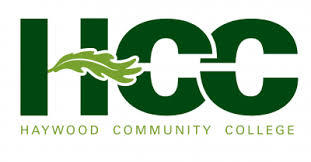
Haywood Community College has an automotive systems technology program that prepares students to apply technical expertise and capabilities to maintain, diagnose, service and repair all kinds of vehicles. The program also provides training and instruction in suspension and steering; heating and air conditioning systems; brake systems; engine repair; engine performance; automatic and manual transmissions; and electrical systems. They complete required courses such as Transportation Climate Control, Brake Systems, Basic Transportation Electricity, Manual Transmissions/Transaxles/Drive Trains, and Advanced Engine Performance. Students must complete 67-68 credits for the successful completion of the associate program.
- Official Program Name: Automotive Systems Technology
- Program Level: Associate, Diploma, Certificate
- Learning Format: On-Campus
- Financial Aid: Federal Pell Grants; Federal Supplemental Educational Opportunity Grant; Scholarships; Federal Work-Study Program; Payment Plan; Veterans Benefits
To learn Auto Repair online, take a look at this: Online Schools for Auto Repair Programs

The Best Dental Hygiene Trade Schools in North Carolina – Campus and Online

When it boils down to delivering preventative dental care in North Carolina, dental hygienists are at the forefront in this specific industry. Where dentists examine and treat diseases related to teeth and gums, dental hygienists perform their best to ensure these diseases won’t occur. They educate patients about the right type of oral hygiene procedures they’ll need to practice at home. They also perform root planing and periodontal scaling and, of course, they clean the patient’s teeth. Some dental hygienists administer numbing shots and perform dental X-rays to patients.
The core courses that are taken at dental hygiene schools in North Carolina include pathology, chemistry, microbiology, biology, anatomy, chemistry, and physiology. Prospective dental hygienists may also complete specialty classes such as dental pharmacology, pain management, oral anatomy, dental materials laboratory, and radiology. Communicating with patients is an integral part of a dental hygienists’ role; therefore, students may be recommended to enroll in communications classes. The curriculum of a dental hygiene program generally has a comprehensive classroom component and an experiential aspect in which learners will work in real-life situations under the management of a licensed dentist.

Students who enroll at a community college in North Carolina for their dental hygiene education may complete an associate degree program in 20-30 months, paying $3,660. An associate degree-affiliated with a dental college or university may require students to pay as much as $40,620.
Dental Hygienists in North Carolina cannot work on their own but should be supervised by a licensed dentist. Unsurprisingly, dental hygienists in North Carolina work in dentists’ clinics. In most circumstances, the presence of a dentist must be required where the dental hygienist is working. On very few occasions, dental hygienists can work without direct supervision if a licensed dentist has written out procedures and instructions on what the hygienist will be working. This qualification is utilized to cover 67% of dental hygienists who work in community clinics facilitated by the county, federal, or state governments. An additional 67% of dental hygienists work with medical physicians who are experts in treating dental conditions.
A dental hygienist in North Carolina earns an average annual wage of $70,000. Sick leaves, vacation leaves, and healthcare insurance differ per employer. The need for qualified dental hygienists in North Carolina is projected to increase by almost 25% by 2026. Joining the North Carolina Dental Hygienists’ Association will provide individuals access to career prospects and continuing education classes as well as discounts on personal and professional services across the country from affiliated partners.

Fayetteville Technical Community College
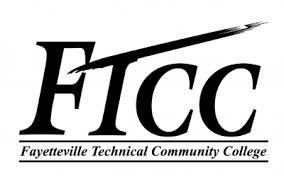
Fayetteville Technical Community College has a dental hygiene program that receives accreditation from the Commission of Dental Accreditation. The program prepares learners with the expertise and capabilities to diagnose, examine, evaluate, assess, and implement dental hygiene routine for each individual and the community. It teaches students how to teach oral hygiene; complete required chart entries; take patient histories; perform other procedures related to oral care, and apply preventative measures to oral care.
- Official Program Name: Health Programs: Dental Hygiene
- Program Level: Associate
- Learning Format: On-Campus
- Financial Aid: Veteran’s Educational Benefits; Grants; Student Loans; Scholarships; Workforce Investment Act; Work-Study Programs

Guilford Technical Community College
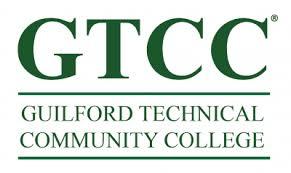
Guilford Technical Community College’s Dental Hygiene program has earned accreditation from the American Dental Association’s Commission on Dental Accreditation. The program prepares students with knowledge and expertise to assess, diagnose, examine, plan, and implement dental hygiene care for an individual and the community. This 77-credit dental program has core dental courses in Dental Radiography; Dental Hygiene Pre-clinic Laboratory; Orofacial Anatomy; General and Oral Pathology; and Community Dental Health. Graduates can sit for the national and state examinations for licensure, which is required for dental hygiene practice of the profession.
- Official Program Name: Dental Hygiene
- Program Level: Associate
- Learning Format: On-Campus
- Financial Aid: Scholarships; State, Federal, and School-based Awards; Student Loans; Grants; Federal-Work Study Programs

Forsyth Technical Community College
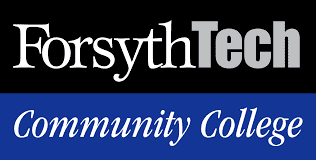
Forsyth Technical Community College offers a dental hygiene program that provides students with the skills and knowledge to implement, evaluate, plan, and access dental hygiene care for people and society. This 74-credit dental hygiene program has core required courses such as Nutrition/Dental Health, Dental Hygiene Theory, Dental Radiography, Basic Anatomy and Physiology, and Orofacial Anatomy. Graduates are qualified to sit for the national and state examinations for licensure, which are needed to practice the dental hygiene profession.
- Official Program Name: Dental Hygiene
- Program Level: Associate
- Learning Format: On-Campus
- Financial Aid: Grants; Scholarships; Student Loans; Federal-Work Study Programs

Wayne Community College

Wayne Community College has a dental hygiene program that provides students the essential training they require to help them prepare dental operatory procedures, complete chart entries; record patient histories; take x-rays, and perform other responsibilities related to dental hygiene care. The dental hygiene program has earned accreditation from the Commission on Dental Accreditation of the American Dental Association. Students require 74 credits for the successful completion of the program. Sample courses include Materials and Procedures; Dental Hygiene Clinic; Writing and Inquiry; Community Dental Health; and Professional Development.
- Official Program Name: Dental Hygiene
- Program Level: Associate
- Learning Format: On-Campus
- Financial Aid: N/A
Looking for online options? If so, you will want to check out our choices for the best 100 Percent Online Dental Hygienists Degree Programs

The Best Medical Billing and Coding Trade Schools in North Carolina – Campus and Online

Medical Billing and Coding classes in North Carolina are driving students at high rates due to the growing demand for qualified learners. All medical billing and coding professionals in North Carolina are regulated at the national level by specific industries and organizations. While there will be an extensive commitment of resources to become certified, the advantage of doing so offers students the importance of having it. The majority of facilities require their candidates to get certified; however, there are companies in North Carolina that still employ non-certified professionals.

North Carolina’s medical insurance billing and academic coding programs grant three kinds of credentials to their graduates. These levels of education are either a certificate/diploma, associate-level degree, and/or a bachelor’s degree program. Most employers recognize these trade programs.
The majority of accredited billing and coding programs make it attainable for each learner to complete internships with the area and state-wide businesses. Prospective students for this program in North Carolina are recommended to talk with their perspective program advisors to identify which opportunities are suitable to make it easier to gain the knowledge and experience needed to be eligible for certification evaluation in North Carolina.
Medical billing and coding workers in North Carolina are required to pass one of many national certification examinations to be certified. Several accredited training classes prepare students for these certification exams.
In the U.S. and North Carolina, the demand is very high for medical billing and coding professionals. The U.S. Bureau of Labor Statistics discloses that there is an expected growth of 20% for new opportunities for medical billing and coding specialists in the state throughout 2024.

Asheville-Buncombe Technical Community College
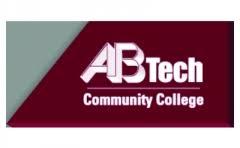
Asheville-Buncombe Technical Community College offers an Associate in Applied Science-Medical Office Administration that requires 74 credits for program completion. Students are trained to become competent medical administrative personnel in the areas of patient services, dental offices, medical documentation, medical facilities, and other healthcare-related facilities. The program has core medical administration courses, including Text Entry and Formatting, Records Management, Principles of Financial Accounting, Medical Office Simulation, and Medical-Legal Issues.
- Official Program Name: Medical Office Administration
- Program Level: Associate
- Learning Format: On-Campus
- Financial Aid: Scholarships; Federal and State Grants; Direct Loans; Work-Study Programs

Forsyth Technical Community College
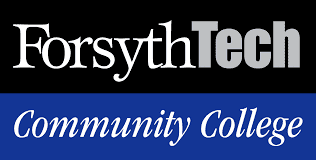
Forsyth Technical Community College has a medical billing and coding program that prepares students for career opportunities as medical administrative professionals in the areas of medical documentation, medical office, patient services, and medical billing & coding. Students complete required courses such as Diagnostic Coding, Medical-Legal Issues, Med Office Terms, Office Editing, and Medical Office Procedures. Moreover, they must have 68 credits for the completion of the program. After graduation, they may qualify to take industry-recognized certification examinations.
- Official Program Name: Medical Office Administration-Medical Billing & Coding Track
- Program Level: Associate
- Learning Format: On-Campus
- Financial Aid: Grants; Scholarships; Student Loans; Federal-Work Study Programs

Wayne Community College

Wayne Community College’s medical office administration program requires 47 credits for graduation. The progression of the program depends upon the completion of prerequisite courses and maintaining a grade of “C” or better in specified courses. Students complete core required courses such as Medical Insurance and Billing; Procedure Coding; Medical-Legal Issues; Medical Coding Certification Preparation; and Procedure Coding. After graduation, candidates will be qualified to take the Certified Professional Coder examination.
- Official Program Name: Medical Office Administration/Medical Coding Diploma
- Program Level: Associate, Diploma
- Learning Format: On-Campus
- Financial Aid: N/A

Pamlico Community College

The Associate in Applied Science-Medical Office Administration offered in Pamlico Community College trains students to become responsible in the front office duties and roles such as organizing medical records, preparing reports, answering phones, assisting physicians with different presentations or articles, ordering supplies and equipment and processing invoices. Furthermore, they are exposed to medical transcription software and hardware programs, medical coding, and billing software applications, Microsoft Word, Excel, and PowerPoint applications; and electronic medical records software. This 66-credit medical office administration program has core required courses such as Administrative Office Procedures, Intro to Anatomy and Physiology, Infection/Hazard Control, Medical Office Simulation, and Professional Interactions in Healthcare.
- Official Program Name: Medical Office Administration
- Program Level: Associate
- Learning Format: On-Campus
- Financial Aid: Federal Pell Grants; Federal Supplemental Educational Opportunity Grants; Federal Work-Study; Veterans Benefits; Scholarships; Workforce Investment Act; Child Care Grant; Displaced Homemakers/Single Parent
You are certain to find an online program suitable for your needs! Check out these online options: Accredited Online Schools Offering Outstanding Medical Billing and Coding Programs

The Best Cosmetology Trade Schools in North Carolina – Campus and Online

Beauty customs are deeply rooted in North Carolina, stretching way back. Times and styles have upgraded through time, but the importance of feeling and looking beautiful has not been affected. The state’s cosmetology schools hold fast to those customs and practices and continue to educate stylists. North Carolina’s cosmetology academic institutions have one of the highest career placement rates in the U.S., making the state a suitable option for anyone interested in pursuing a career in the cosmetology industry.

Asheville-Buncombe Technical Community College
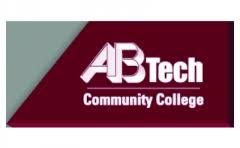
Asheville-Buncombe Technical Community College has a cosmetology program that has received approval from the North Carolina Board of Cosmetic Art Examiners, providing students the credibility of the cosmetology program they will pursue. AB Tech has a Mountain Tech Spa where students of the cosmetology program can enjoy an on-campus spa facility, providing them the necessary practical experience. Students complete required courses such as Computer Basics, Entrepreneurship, Design Applications, Cosmetology Concepts, and Introduction to Interpersonal Communication. Students must have 66 credits for the successful completion of the cosmetology program.
- Official Program Name: Cosmetology
- Program Level: Associate, Certificate
- Learning Format: On-Campus
- Financial Aid: Scholarships; Federal and State Grants; Direct Loans; Work-Study Programs

Guilford Technical Community College
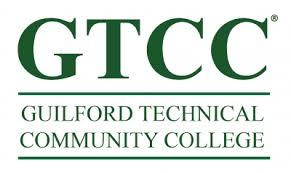
Guilford Technical Community College offers a Cosmetology program, designed to provide competency-based knowledge, hands-on learning, and scientific/artistic components associated with the cosmetology sector. The program provides a simulated salon setting, which allows students to develop manipulative skills. Students can complete either the diploma or certificate program. A certificate program requires 34 credits, while the diploma program requires 47 credits for graduation. Sample courses include Cosmetology Concepts; Salon; Trichology and Chemistry; Contemporary Hair Coloring; and Contemporary Design. Graduates can sit for the State Board of Cosmetic Arts exams. After passing the State Board examinations, graduates will be issued a license.
- Official Program Name: Cosmetology
- Program Level: Diploma, Certificate
- Learning Format: On-Campus
- Financial Aid: Scholarships; State, Federal, and School-based Awards; Student Loans; Grants; Federal-Work Study Programs

Stanly Community College
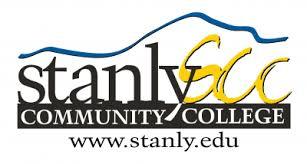
Stanly Community College’s cosmetology program that trains students to perform all services in compliance with sanitation and disinfection processes as standardized by the North Carolina State Board of Cosmetic Art Examiners; demonstrate proper methods and techniques of manufacturing, artificial nail application and pedicuring; identify the basic capabilities of record-keeping, small business management and marketing; and apply the knowledge and demonstrate the skills required to work as a North Carolina licensed professional cosmetologist. Students can either take the certificate, diploma, or associate program, with a varying number of credits for completion. They also complete core cosmetology courses such as Cosmetology Concepts, Salon, Small Business Management, Computerized Salon Ops, Professional Development, and Contemporary Hair Coloring.
- Official Program Name: Cosmetology
- Program Level: Associate, Certificate, Diploma
- Learning Format: On-Campus
- Financial Aid: Veteran Benefits; Student Loans; Work-Study Programs; Federal Grants; Scholarships; Emergency Fund Program; Emergency Loan Program

Pamlico Community College

Pamlico Community College has a cosmetology program with a curriculum that provides competency-based knowledge and hands-on fundamentals related to the cosmetology sector. It is taught in a salon setting where students enhance their skills and knowledge. Sample courses include Salon I-IV, Contemporary Design, Concepts I-III, Mathematical Measurement PI, Applied Communications, and College Student Success. The certificate program requires 34 credits, while the diploma program requires 48 credits for graduation. Graduates may be eligible to take the State Board of Cosmetic Arts exams. After passing the State Board examinations, they will be granted a license.
- Official Program Name: Cosmetology
- Program Level: Certificate, Diploma
- Learning Format: On-Campus
- Financial Aid: Federal Pell Grants; Federal Supplemental Educational Opportunity Grants; Federal Work-Study; Veterans Benefits; Scholarships; Workforce Investment Act; Child Care Grant; Displaced Homemakers/Single Parent

Lenoir Community College
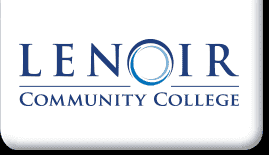
Lenoir Community College prides itself on being one of the best vocational schools in North Carolina that offers a cosmetology program. The program requires 65 credits for completion, consisting of general education requirements and major courses. Students complete required cosmetology courses such as Art Appreciation, Music Appreciation, Salon, Cosmetology Concepts, and Small Business Management.
- Official Program Name: Cosmetology
- Program Level: Associate, Skills Certificate
- Learning Format: On-Campus
- Financial Aid: Federal Pell Grants; Community College Grants; Scholarships; Federal Work-Study Programs; Loans; Veterans Benefits

The Best Information Technology Trade Schools in North Carolina – Campus and Online

Whether you are an individual who is aiming for a profession at one of the biggest technology companies in North Carolina or seeking to get involved with a start-up that focuses on developing technologies, obtaining a degree from one of the Information Technology or computer science degree programs in the state can provide them with the educational foundation they require.
The Economic Development Partnership of North Carolina published in 2020 that North Carolina has the 3rd fastest growing information technology sector in the United States, with a growth of 17.2% from 2012-2017. CompTIA’s Cyberstates Report for 2020 showcased North Carolina’s technology sector contributions of more than $46 billion to the state’s economy. The indicated numbers clearly show that the tech industry is booming and that North Carolina has no shortage of potential I.T. companies and employers.
The state is a powerhouse of technology, and the education, community, state, and business leaders have developed several programs to continue the expansion of the state’s I.T. industry and infrastructure. Any dialogue related to North Carolina’s computer science education starts with The Research Triangle, an area of the state that is located inside the borders between three academic research institutions, namely Durham’s Duke University, Chapel Hill’s University of North Carolina, and Raleigh’s North Carolina State University. Moreover, these three schools are only a part of the many schools providing I.T. degree programs in North Carolina.
The state and its Research Triangle tech sector continue to maintain an essential factor and presence in the country’s I.T. industry employment environment. That said, the Research Triangle Park itself has hosted more than 200 companies. North Carolina’s emphasis on the development of high-performing I.T. schools has resulted in excellent gains for the state’s high-tech industry.

Asheville-Buncombe Technical Community College
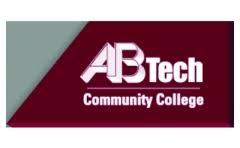
Asheville-Buncombe Technical Community College has several certificate programs that provide students with the essential skills and experience to succeed in an exciting and rapidly-growing field of Information Technology. The Information Technology concentration consists of nine certificates that students can choose from, namely Computer Basics; Database Management; GIS Fundamentals; Web Developer Level I; Web Developer Level II; PC Installation and Maintenance; MCSA Preparation; CCNA Preparation; and Network Systems Administrator Certificate. These certificate programs require 12-18 credits, depending on the students’ chosen program.
- Official Program Name: Computer Technologies, Online Information Technology: GIS Fundamentals
- Program Level: Certificate
- Learning Format: On-Campus,
- Financial Aid: Scholarships; Federal and State Grants; Direct Loans; Work-Study Programs

Pitt Community College
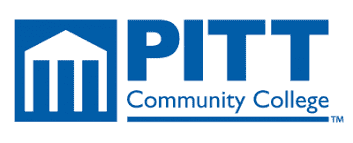
Pitt Community College’s computer programming and development programs are designed to emphasize the development, design, maintenance, and implementation of software applications for computer systems. It provides individuals with the crucial skills to create and design software applications and I.T. solutions based on user requirements and needs. Students will complete required courses such as JAVA Programming, Python Programming, Systems Analysis and Design, C++ Programming, and Database Management Systems.
- Official Program Name: Online Information Technology: Computer Programming and Development
- Program Level: Associate, Certificate
- Learning Format: On-Campus,
- Financial Aid: Grants; Scholarships; Federal Work-Study Employment; Federal Loans

Fayetteville Technical Community College
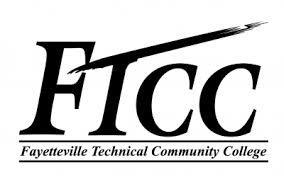
Fayetteville Technical Community College offers I.T./Computer Programming and Development program that prepares students for career opportunities in the I.T. industries as testers, developers, programmers, designers, support technicians, or system administrators who utilize computer hardware and software to design, implement, maintain different information systems. Students must complete 66 credits worth of courses for the completion of the program. They complete I.T. core courses such as Database Concepts, JAVA Programming, Network and Security Foundation, Systems Analysis and Design, and C# Programming.
- Official Program Name: Computer Programming and Development (A25590C)
- Program Level: Associate
- Learning Format: On-Campus
- Financial Aid: Veteran’s Educational Benefits; Grants; Student Loans; Scholarships; Workforce Investment Act; Work-Study Programs

Guilford Technical Community College
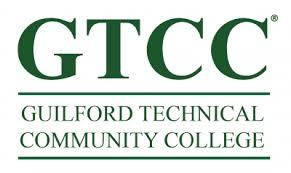
Guilford Technical Community College has an Information Technology program that is designed for students who prefer the convenience and flexibility to choose their I.T. courses for their associate degree program. Aside from the core required courses, students can customize their degree plan based upon I.T. specializations that interest them. For example, they can choose a Virtualization Administration and Web Development certificates to integrate within the General Studies track. GTCC offers 13 specializations that students can choose to embed with their General Studies program. An associate degree requires 66 to 68 credits for completion. Sample courses include Introduction to Computers; Network and Security Fundamentals; Intro to Programming and Logic; OS and Device Foundation; and Web, Programming, and Database Foundation.
- Official Program Name: Information Technology-General Studies Track
- Program Level: Certificate, Associate
- Learning Format: On-Campus, Online
- Financial Aid: Scholarships; State, Federal, and School-based Awards; Student Loans; Grants; Federal-Work Study Programs

Stanly Community College
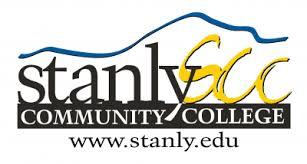
Stanly Community College’s I.T. business support program is developed to prepare students for career opportunities that utilize computers to manage, communicate, and process information. Students will demonstrate expertise in advanced computer skills when creating and presenting the final PowerPoint presentation; integrate computer hardware and operating procedures to develop a functional computer system, and utilize necessary programming skills in a chosen project. An associate degree program requires 66-69 credits for graduation. Required coursework includes Operating Systems Concepts, Database Concepts, Introduction to Programming and Logic, Security Concepts, and Network and Security Foundation.
- Official Program Name: Information Technology-Business Support
- Program Level: Associate, Certificate, Diploma
- Learning Format: On-Campus, Online
- Financial Aid: Veteran Benefits; Student Loans; Work-Study Programs; Federal Grants; Scholarships; Emergency Fund Program; Emergency Loan Program
If you’re looking for an online Bachelor’s degree program, see our Top 5 Online Bachelor of Information Technology Degree Programs

The Best Photography Trade School in North Carolina – Campus Only

Learners exploring a degree program in photography have opportunities at both two-year and four-year academic institutions in North Carolina. The institutions listed include North Carolina’s photography or photographic technology program offerings. Such programs may result in the grant of a certificate, diploma, or associate degree in an art-related field, specifically in photography.
Learners will probably need to have their camera for classes in photography, but the school also provides additional resources or equipment such as digital editing software applications, darkrooms, and studios. Programs in art advocate the development of a portfolio of creations, and some of these programs allow exhibitions on-campus.

Stanly Community College
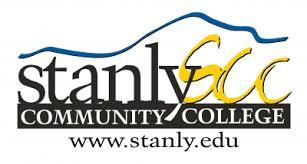
Stanly Community College offers a digital photography certificate program that provides individuals with expertise and capabilities required to work either assisting professionals in different areas of photography or as a freelancer. The program offers training in the photographic techniques and concepts related to photojournalism, commercial, and portraiture. Sample courses include Photography Destination, Visual Storytelling, and Portfolio Design, Introduction to Digital Photography, Photography Practicum, Adobe Photoshop CC for Digital Photographers, and Advanced Photography. A digital SLR is required in the program.
- Official Program Name: Digital Photography Certificate Program
- Program Level: Certificate
- Learning Format: On-Campus
- Financial Aid: Veteran Benefits; Student Loans; Work-Study Programs; Federal Grants; Scholarships; Emergency Fund Program; Emergency Loan Program
How about some online options: Top Online Trade Schools for Photography Degree Programs